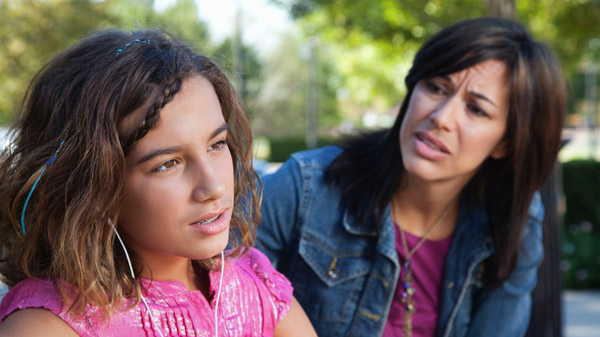We’ve all seen helicopter parents in action: the ones who get aggressive at Easter egg hunts, and who, even at the college level, can’t stop calling to check up on their kids or crashing orientations. These well-meaning parents might think they’re doing their kids a favor, but the reality couldn’t be further from the truth: experts believe that they’re setting kids up for problems with independence, responsibility, and anxiety. Read on to learn about 10 of the ways helicopter parenting hurts.

- Children are more likely to be medicated for anxiety and/or depression: Researchers at the University of Tennessee at Chattanooga studied more than 300 college students in Does Hovering Matter? Helicopter Parenting and Its Effect on Well-Being. The study indicated that students with hovering parents experienced “lower psychological well-being.” Specifically, these children were more likely to be medicated for anxiety, depression, or both. Hovering parents at this level were likely to hold themselves back from constant phone calls, instead preferring to check in with their children through Facebook.
- Parents suffer from more anxiety too: It’s not just children feeling the anxious effects of helicopter parenting; parents report similar problems as well. A study by the Society for Research in Child Development indicated that helicopter parents suffered from mental health problems as well, stemming from an assessment of self-worth based on their children’s accomplishments. These parents reported “sadness, negative self-image and diminished contentment with life in general.” George Maxon University provost Peter Stearns indicates that parental anxiety has increased over the past 20 years due to over-involvement.
- Children become neurotic: Keene State College researchers have discovered that children with helicopter parents are more likely to become neurotic. Studying 300 freshmen, research indicated that these students were “less open to new ideas and actions, as well as more vulnerable, anxious and self-conscious.” Researchers point out that these factors are hardly the basis of a successful college student personality.
- Children feel like they lack control: When parents control nearly all aspects of a child’s life, it’s not at all surprising that these children feel as if they do not have any control in their lives. In a Current Directions in Psychological Science report, psychologists indicate that the more a parent makes decisions for adolescent children, the more the children suffer emotionally and feel a lack of control over the course of their own lives.
- Social and personal downsides for students: In a 2007 research project, Indiana University’s Center for Post-secondary Research associate director Jillian Kinzie indicated that helicopter parenting does have its perks: students with helicopter parents tend to be prepared with the academic skills necessary for college, as well as being more engaged and satisfied in learning. But on the downside, these same students are severely lacking in life skills, unable to manage conflict resolution, and experience difficulty with sharing and self-reliance.
- Kids turn into quitters: We are now seeing a generation of helicoptered children grow into adults, and a study from Jean Twenge at San Diego State University indicates that many former helicoptered children are becoming quitters. In this study, the current generation of new employees expects good pay and prestigious job status, but does not expect to put in long hours to do so. Twenge believes that these overprotected children who do not get what they want will turn into quitters, unaccustomed to failure and having to do things on their own.
- Lowered feelings of self-worth: Helicopter parents are often all too eager to step in and save the day when it looks like things aren’t going well for their children. But experts say this behavior is teaching kids that their parents don’t believe they’re good enough to do things on their own, undermining feelings of self-worth. By over-assisting, parents deprive their children of the satisfaction of mastering tasks they have been working toward.
- A lack of responsibility: Children of helicopter parents often learn that they’re not responsible for their own actions, because typically, their parents are the ones in charge of making mistakes disappear. Experts believe that these children have difficulty learning self-control. Helicopter parented adults tend to bully other people into getting what they want, rather than being responsible for their own successes.
- Establishing unreasonable expectations: Well-meaning parents who rush in to clear every path and solve every problem are not granting their children the opportunity to learn how to fight their own battles and accept disappointment. These children who do not handle their own problems grow up thinking that life should always be easy and happy, so when their adult lives are not so perfect, they find they have unreasonable expectations, struggles, and anxiety in the real world.
- An inability to be self-sufficient: For children who are coddled and spoon-fed their entire young lives, it is not at all surprising to hear that they experience difficulty in becoming self-sufficient. Educators report that helicoptered children enter schools without essential skills for self-sufficiency. They also suffer academically, experiencing trouble when they have to think critically and analytically on their own.
No comments:
Post a Comment